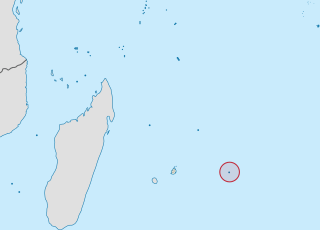Related Research Articles

Hindi cinema, popularly known as Bollywood and formerly as Bombay cinema, refers to the film industry based in Mumbai, engaged in production of motion pictures in Hindi language. The popular term Bollywood is a portmanteau of "Bombay" and "Hollywood". The industry is a part of the larger Indian cinema, which also includes South Indian cinema and other smaller film industries. The term 'Bollywood', often mistakenly used to refer to Indian cinema as a whole, only refers to Hindi-language films, with Indian cinema being an umbrella term that includes all the film industries in the country, each offering films in diverse languages and styles.

Mauritius, officially the Republic of Mauritius, is an island nation in the Indian Ocean, about 2,000 kilometres off the southeastern coast of East Africa, east of Madagascar. It includes the main island, as well as Rodrigues, Agaléga, and St. Brandon. The islands of Mauritius and Rodrigues, along with nearby Réunion, are part of the Mascarene Islands. The main island of Mauritius, where the population is concentrated, hosts the capital and largest city, Port Louis. The country spans 2,040 square kilometres (790 sq mi) and has an exclusive economic zone covering 2,300,000 square kilometres.

Transportation in Mauritius is characterized by the network of roadways, ports, and airports. The island was originally only accessible by boat until 1922, when the first flight landed in Mauritius.

Rodrigues is a 108 km2 (42 sq mi) autonomous outer island of the Republic of Mauritius in the Indian Ocean, about 560 km (350 mi) east of Mauritius. It is part of the Mascarene Islands, which include Mauritius and Réunion. Like Agaléga, Rodrigues is a constituent island of the Republic of Mauritius, under the Constitution of Mauritius and still remains, as explicitly defined by the same Constitution, part of the Sovereignty of Mauritius, together with the following islands: "Agalega, Tromelin, Cargados Carajos, Chagos Archipelago ... Diego Garcia and other islands included in the State of Mauritius".
Mauritius is a multi-ethnic, multilingual and a plural society with a population composed mainly of four major ethnic and religious groups. It is often depicted as a "rainbow nation".

The Chagos Archipelago or Chagos Islands is a group of seven atolls comprising more than 60 islands in the Indian Ocean about 500 kilometres (310 mi) south of the Maldives archipelago. This chain of islands is the southernmost archipelago of the Chagos–Laccadive Ridge, a long submarine mountain range in the Indian Ocean. In its north are the Salomon Islands, Nelsons Island and Peros Banhos; towards its south-west are the Three Brothers, Eagle Islands, Egmont Islands and Danger Island; southeast of these is Diego Garcia, by far the largest island. All are low-lying atolls, save for a few extremely small instances, set around lagoons.

Kuch Kuch Hota Hai is a 1998 Indian Hindi-language musical romantic comedy drama written and directed by Karan Johar and produced by his father Yash Johar under Dharma Productions. It stars Shah Rukh Khan, Kajol, Rani Mukherji and Salman Khan in lead roles, with Sana Saeed in a pivotal supporting role. The plot combines two love triangles set years apart. The first half covers friends on a college campus, while the second tells the story of a widower's young daughter who tries to reunite her dad with his old best friend.

Cinema of Africa covers both the history and present of the making or screening of films on the African continent, and also refers to the persons involved in this form of audiovisual culture. It dates back to the early 20th century, when film reels were the primary cinematic technology in use. As there are more than 50 countries with audiovisual traditions, there is no one single 'African cinema'. Both historically and culturally, there are major regional differences between North African and sub-Saharan cinemas, and between the cinemas of different countries.

Le Morne Brabant is a peninsula at the extreme southwestern tip of the Indian Ocean island of Mauritius. On it is a basaltic monolith of the same name 556 metres high. Its summit covers an area of over 12 hectares. There are many caves and overhangs on the steep slopes. It is largely surrounded by a lagoon and is a well known tourist attraction. It is also a refuge for two rare plants, the Mandrinette and the Boucle d'Oreille. The peninsula of Le Morne benefits from a micro-climate. The mountain is named after the Dutch East India Company ship Brabant that ran aground here on 29 December 1783.
Indo-Mauritians are Mauritians who trace their ethnic ancestry to the Republic of India or other parts of the Indian subcontinent in South Asia.

Films have been made in Lithuania since the early twentieth century.

Masala films of Indian cinema are those that blend multiple genres into one work. Masala films emerged in the 1970s and are still being created as of the 2020s. Typically these films freely blend action, comedy, romance, and drama or melodrama. They also tend to be musicals, often including songs filmed in picturesque locations.
Jordan has, in recent decades, established itself as an attractive destination for filmmaking for a number of reasons: its variety of locations, infrastructure, sunny weather, governmental support for the film industry, straightforward administrative procedures and financial incentives. A cash rebate is available, which varies between 10% and 25%, depending on spend, and productions are exempt from Jordanian taxes. Combined with the cash rebate, this means that productions may recoup up to 56%.
The following is an index of Mauritius-related topics by alphabetical order. For a list by topic, see list of Mauritius-related topics
H.M. Rawat Corporate, was established in 1959 and trades in the IOI with sub offices overseas. Based in Port-Louis, the company engages in the import of luxury and general goods, machinery, fast food, catering, hotel, agriculture and brand mobile phones.

The St. Gabriel Cathedral is a religious building that serves as a cathedral of the Catholic Church's Apostolic Vicariate of Rodrigues. It is located in the town of St. Gabriel on the island of Rodrigues, the third smallest island in the Mascarene archipelago geographically part of the African island country of Mauritius.
Benares is a Mauritius movie directed and written by Barlen Pyamootoo, and released on 29 March 2006 (France). With the film, Pyamootoo became the first Mauritian filmmaker to use Mauritian Creole in a film.
Barlen Pyamootoo, is a Mauritian filmmaker and writer. He is notable as the director of critically acclaim film Bénarès.

Mauritian nationality law is regulated by the Constitution of Mauritius, as amended; the Mauritius Citizenship Act, and its revisions; and various international agreements to which the country is a signatory. These laws determine who is, or is eligible to be, a national of Mauritius. The legal means to acquire nationality, formal legal membership in a nation, differ from the domestic relationship of rights and obligations between a national and the nation, known as citizenship. Nationality describes the relationship of an individual to the state under international law, whereas citizenship is the domestic relationship of an individual within the nation. In Britain and thus the Commonwealth of Nations, though the terms are often used synonymously outside of law, they are governed by different statutes and regulated by different authorities. Mauritian nationality is typically obtained under the principle of jus sanguinis, i.e. by birth in Mauritius or abroad to parents with Mauritian nationality. It can be granted to persons with an affiliation to the country, or to a permanent resident who has lived in the country for a given period of time through naturalisation.
References
- 1 2 Shanguhyia (2015). "Mauritius". In Toyin Falola; Daniel Jean-Jacques (eds.). Africa: An Encyclopedia of Culture and Society [3 volumes]: An Encyclopedia of Culture and Society. ABC-CLIO. p. 821. ISBN 978-1-59884-666-9.
- 1 2 "The Current State of Cinema In the Indian Ocean Islands". Archived from the original (PDF) on 2021-03-22. Retrieved 2019-10-16.
- ↑ "Mauritius Film Development Corporation - About Us". Archived from the original on 2020-10-07. Retrieved 2019-10-16.
- 1 2 Lindsay Fortado, Mauritius offers tax breaks to attract Bollywood movie industry, Financial Times , September 29, 2016.
- ↑ "Île Courts International Short Film Festival". filmfreeway.com. FilmFreeway. 2024. Archived from the original on 2022-05-24. Retrieved 11 July 2024.
- ↑ Mauritius launches 30% rebate scheme to attract Bollywood, The Economic Times , October 31, 2013
- ↑ Auzias, Dominique; Labourdette, Jean-Paul (2023-07-10). MAURICE 2023/2024 Petit Futé (in French). Petit Futé. ISBN 978-2-305-09672-8.
- ↑ Collectif (2019-03-15). Produire des films: Afriques et Moyen Orient (in French). Presses Universitaires du Septentrion. ISBN 978-2-7574-2331-8.
- ↑ "About the Event". Archived from the original on 2020-10-07. Retrieved 2019-10-16.
- ↑ UNESCO (2021-09-30). L'industrie du film en Afrique: Tendances, défis et opportunités de croissance (in French). UNESCO Publishing. p. 176. ISBN 978-92-3-200239-6.
- ↑ UNESCO (2021-10-01). The African Film Industry: Trends, challenges and opportunities for growth. UNESCO Publishing. p. 167. ISBN 978-92-3-100470-4.
- ↑ Emrith, Moomtaz (1994). History of the Muslims in Mauritius. ELP. ISBN 978-99903-23-10-8.
- ↑ Benares , retrieved 2019-11-03
- ↑ "Barlen Pyamootoo: "There is No Passport in Literature"". sampsoniaway. Retrieved 19 October 2020.
